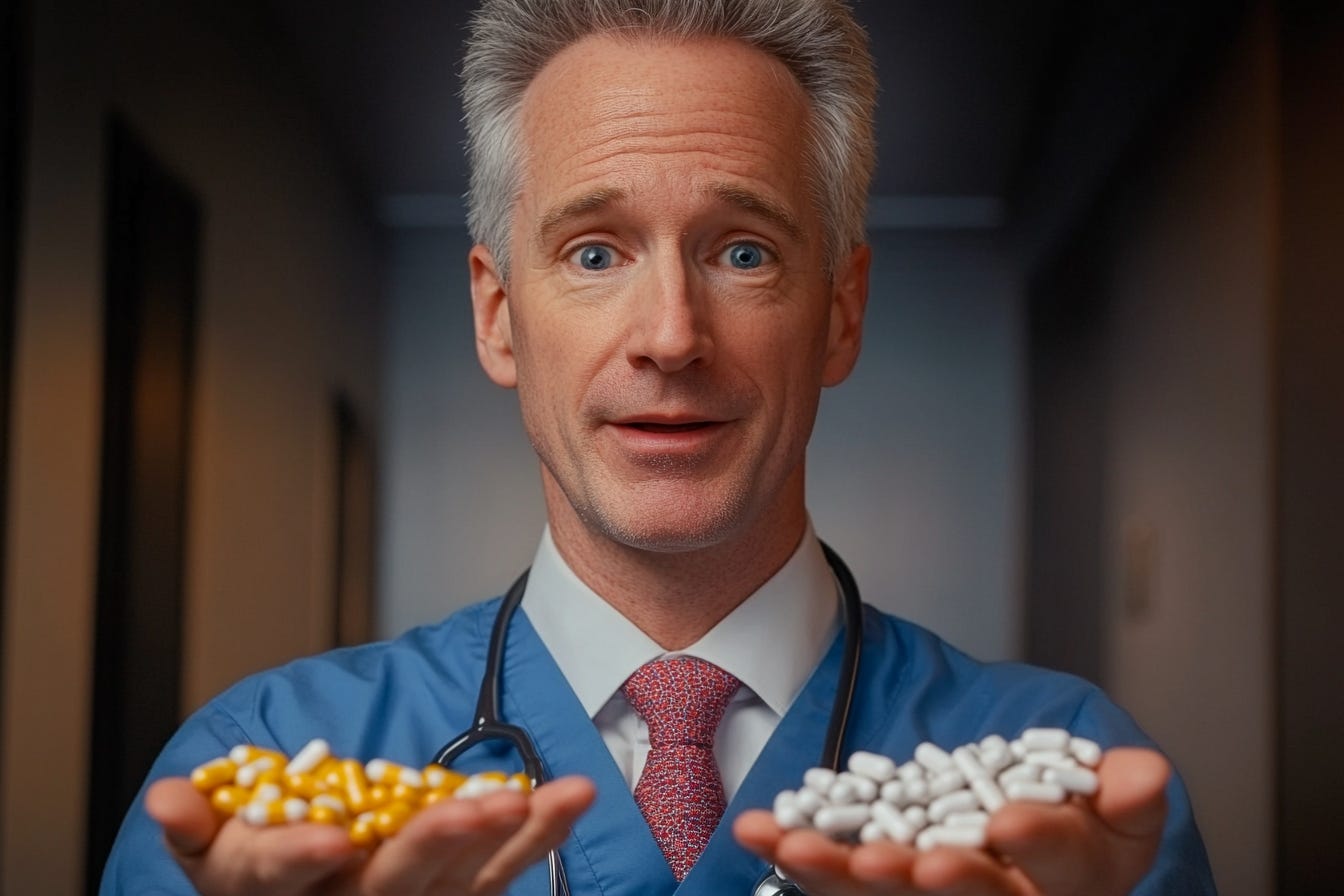And the next anti-vax grift is...
Mpox is definitely a government psyop
Anti-vax cardiologist Peter McCullough recently appeared on Drew Pinsky’s show to talk about mpox.
He’s not alone: a wave of anti-vaxxers are warning that mpox is a government psyop. Pulling from the anti-Covid vax playbook, they’re lazily applying it to this virus in the wake of the WHO declaring it an international public health emergency.
As the Chief Scientific Officer of the supplements company, The Wellness Company, McCullough has a vested interested in railing against pharmaceutical interventions for viruses. (Pinksy is the Chief Patient Officer of the same company, so their alliance is not surprising.)
A recent marketing newsletter by The Wellness Company featured McCullough warning against a standard biosecurity exercise as “proof” something nefarious is at hand.
We should let that sink in. This is why organizations like NTI exist: to study the potential gaps in current preparation methods and strengthen them. They’re staged to teach organizations and governments to be prepared for when a tragedy occurs.
Here’s the function of tabletop exercises:
Preparation and Planning. Tabletop exercises are a critical tool for organizations to prepare for potential crises and emergencies, allowing teams to identify gaps in plans, and to test procedures and systems. These exercises help evaluate the reliability and effectiveness of communication systems, IT recovery procedures, and other technological resources under simulated crisis conditions.
Skill Development. Tabletop exercises provide a safe environment for teams to develop and refine crucial skills, like improved decision-making and team coordination.
Training and Awareness. Conducted to help familiarize new staff with emergency procedures and their roles, tabletop exercises also serve as a refresher for existing staff. They help increase overall awareness about potential threats and prepare teams for a variety of scenarios.
Compliance and Evaluation. Tabletop exercises help governments and organizations meet regulatory requirements and evaluate preparedness.
Practical Benefits. Finally, these simulations help make actual training and preparation cost-effective while being studied in a low-pressure environment—rather than waiting for an emergency to unfold. They also help facilitate collaboration, because identifying weaknesses are a positive outcome; better to find out here than during a real emergency.
Does McCullough entertain any of this? Of course not.
He relies on people’s ignorance about why such exercises are conducted to fear-monger. Not ironically, the “let that sink in” line is followed by an ad for The Wellness Company’s “Medical Emergency Kit”—their marquee $300 product first rolled out as an “answer” to the Covid vaccines.
Watch what they say, then watch what they sell.
Unfortunately, for us, for public health, for the immunocompromised, for common sense, anti-vaxxers are incentivized to spread misinformation about every public health threat. As mpox is in the news, their target is set.
It’s not just McCullough. Mikki Willis recently sent out long-winded email that claims mpox is a psyop while falsely representing the work of Joseph Campbell. Russell Brand went on a long rant about not being sheeple. Bret Weinstein is certain he knows what mpox really is.
All these men have different reasons for spreading misinformation, but they all lead back to brand building and monetization in some capacity.
Yet even in three short minutes, McCullough gets a lot wrong about mpox. Let’s look at what he says and compare it to reality.
Keep reading with a 7-day free trial
Subscribe to re:frame to keep reading this post and get 7 days of free access to the full post archives.






